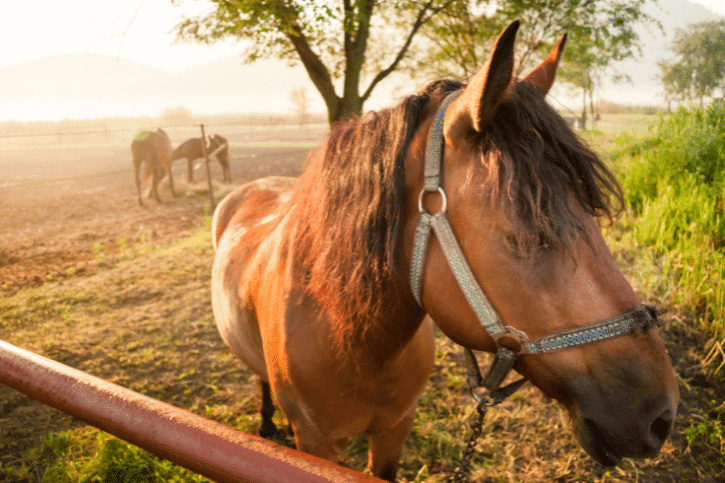Can Horses Get Depressed?
Recently, one of our horses died.
We knew it was coming as she was getting quite old, but it was still devastating nonetheless.
The sadder thing is that she was part of a bonded pair that had been doing everything together basically their whole lives.
It made it even harder on our other horse, and we started to notice pronounced changes in the horse’s behavior.
We got wondering what was physiologically wrong with the horse, the cause being the loss of her friend.
So, I decided to do some research.
Can horses get depressed?
Horses definitely can show clear signs of depression. Referred to as a ‘depression-like’ state since depression itself really is a term to describe a specific human condition, horses can show clear signs of chronic sadness and discomfort as a response to their environment and circumstances.
So, while we can quarrel about the preciseness of the term ‘depressed,’ for the purposes of horse owners, we must essentially think of them in this way.
Horses very much do get depressed, and it’s important to be able to respond appropriately. So, let’s look at the question in more detail.
How do you know if your horse is depressed?
There are numerous behaviors you’ll need to look out for throughout your horse’s life to be able to gauge how it’s feeling.
There can be many causes of depression over a horse’s lifetime, so the best policy is to always be vigilant for the signs of depression.
Here are just a few behaviors that might indicate your horse is not entirely happy.
Often, depressed horses have been seen to stand facing the wall with their neck drawn down and stretched out, exhibiting a withdrawn posture.
They show a lack of eye and ear movement, and their eyes are open with a fixed gaze.
Look out for a general lack of interest and attention in its environment around it.
Tactile stimulation is a good way to judge—if the horse does not respond to your touch or the touch of others, this could be a sign of depression.
If it shows no interest in treats or a general lack of attention to its surroundings, this too could be a sign.
Horses can become depressed for a whole number of reasons, including injury, lack of social interaction, lack of exercise or stress during training.
Keep a close eye on your horse’s behavior at all times—noticing the signs of depression early gives you the best chance of effectively treating it.
How do you make a depressed horse happy?
So, if your horse does become depressed, how can you fix it?
There are a few ways, and the most important thing firstly is to do your best to identify the cause.
The most likely causes are injury or isolation, so if you think it could be injured, or that your horse doesn’t have adequate social contact, these are the first things to address.
Horses cannot live alone; they need the company of other horses.
Make sure it has fresh water each day, as well as fresh, adequate roughage.
Keeping your horse properly fed is the first line of defense against not only depression itself but also other conditions that might lead to depression.
Make sure your horse has a regular routine.
If every day is different, or if it isn’t able to stick to an established routine every day, then it could easily become stressed which can lead to depression.
Give it regular exercise, time to interact with other horses, down time, and visual stimulation.
Horses can simply become bored very easily; they’re large, fast creatures, which in the wild would roam vast areas.
It’s easy to see how this would translate to boredom, stress and depression if not properly exercised and stimulated.
So, how do you notice those signs of stress that lead to depression?
How do you tell if a horse is stressed?
Stress and depression often go hand in hand, but typically stress will lead to depression, rather than the other way around.
Keep an eye on your horse’s weight; stress will lead to a lack of appetite and ability to eat.
This in turn can lead to gastric ulcers, diarrhea and frequent urination, all of which are in turn signs of stress.
Essentially, you should be looking out for distinct changes in your horse’s regular behavior.
If you see this, it’s a strong sign that your horse may be experiencing depression or stress.
Even if your horse shows no signs of depression or stress in ten years, you should always be vigilant for it.
Changes in behavior will be the first thing you notice.
Depression in horses is a serious matter, then, not least because they are such intrinsically social animals.
Just like most humans, horses need the company of other horses in order to be really happy.
Treating depression in horses is much simpler than you might think, though, so don’t despair if you think your horse might be stressed or depressed.
There are plenty of simple things you can do to make your horse feel better in no time.
